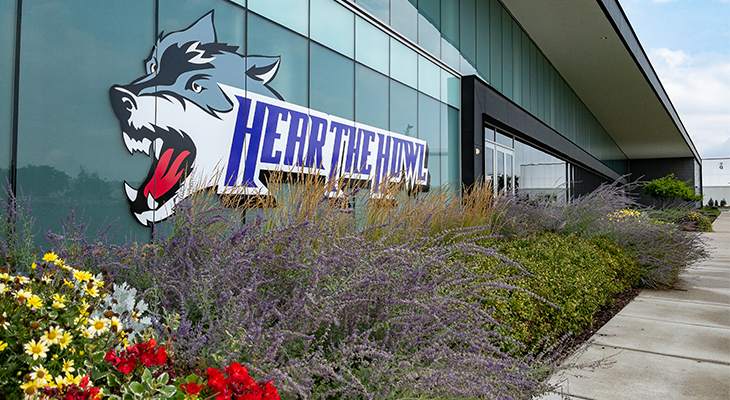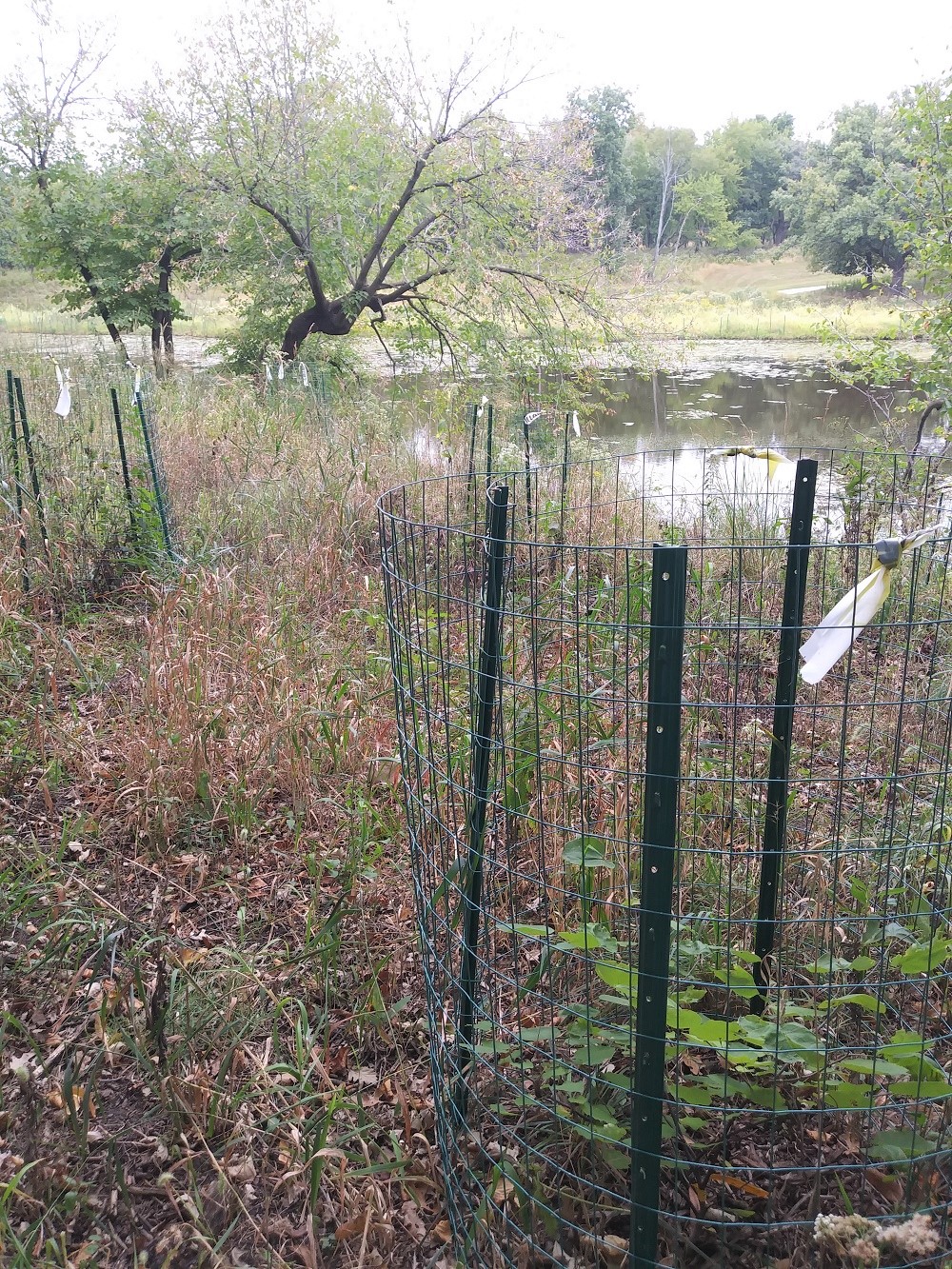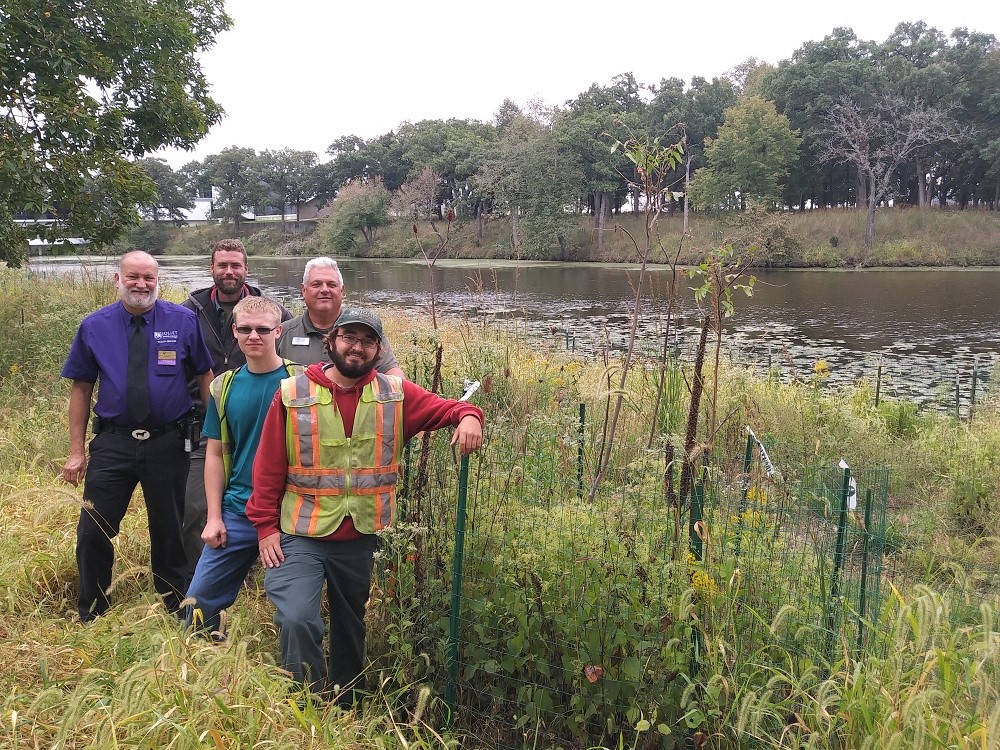
JJC Wolves Basketball vs. Kankakee Community College
Over 20 young trees, including oaks and hickories, and more than 2,000 native plants have been added along the western shoreline of the Joliet Junior College Lake, thanks to a $5,000 grant from the JJC Foundation.

The goal of Biology Professor Leonore Neary was to improve the aesthetic and biological quality of the campus lake and its surrounding shoreline. She received the funding last year.
“In the fall of 2017, 28 trees were planted,” said Neary. “In the spring of 2018, a total of 2,157 herbaceous plants representing 47 different native species were planted around the campus lake.”
The JJC Lake is an extension of the college’s Biological Science Laboratory and an aesthetic focal point of Main Campus. The new trees and herbaceous plant plugs expand this student laboratory, where they can study native plants in aquatic, moist and dry ecosystems just steps from their classrooms. More than 260 biology students could have this opportunity each semester, Neary said.
The new vegetation also benefits the lake’s natural areas. According to Neary, they stabilize the soil, which reduces erosion. They also reduce nutrient runoff - slowing the rate of eutrophication - or the natural process in which the lake fills with soil and organic material. Additionally, the young trees restore an aging population of oaks and hickories, and the vegetation provides butterflies and other pollinators added shelter and food.

“Once this planting is established, it should be an attractive and sustainable landscape for years to come,” said Neary.
Since 2004, The Natural Sciences Club at JJC has sponsored biannual volunteer workdays to remove buckhorn and other nonnative species from the lake’s west side. Now, the area has been replanted with environmentally beneficial native plants.
Neary thanked Pizzo and Associates, Possibility Place and Biology Professor Andrew Neill for helping to determine the species of native plants as well as their planting requirements. She also credited Rich Rivera, assistant director of facility services, and his grounds crew for helping with the planting. She said it will take a few years for the plants to become fully established and at the time the fencing to protect them from deer browse will come down.
Neary’s grant from the JJC Foundation is part of $50,000 in total funds awarded each year to faculty and staff for various campus projects or programs.
For media inquiries contact Communications and Media Coordinator Scott Harvey at 815-280-2844 or sharvey@jjc.edu.

